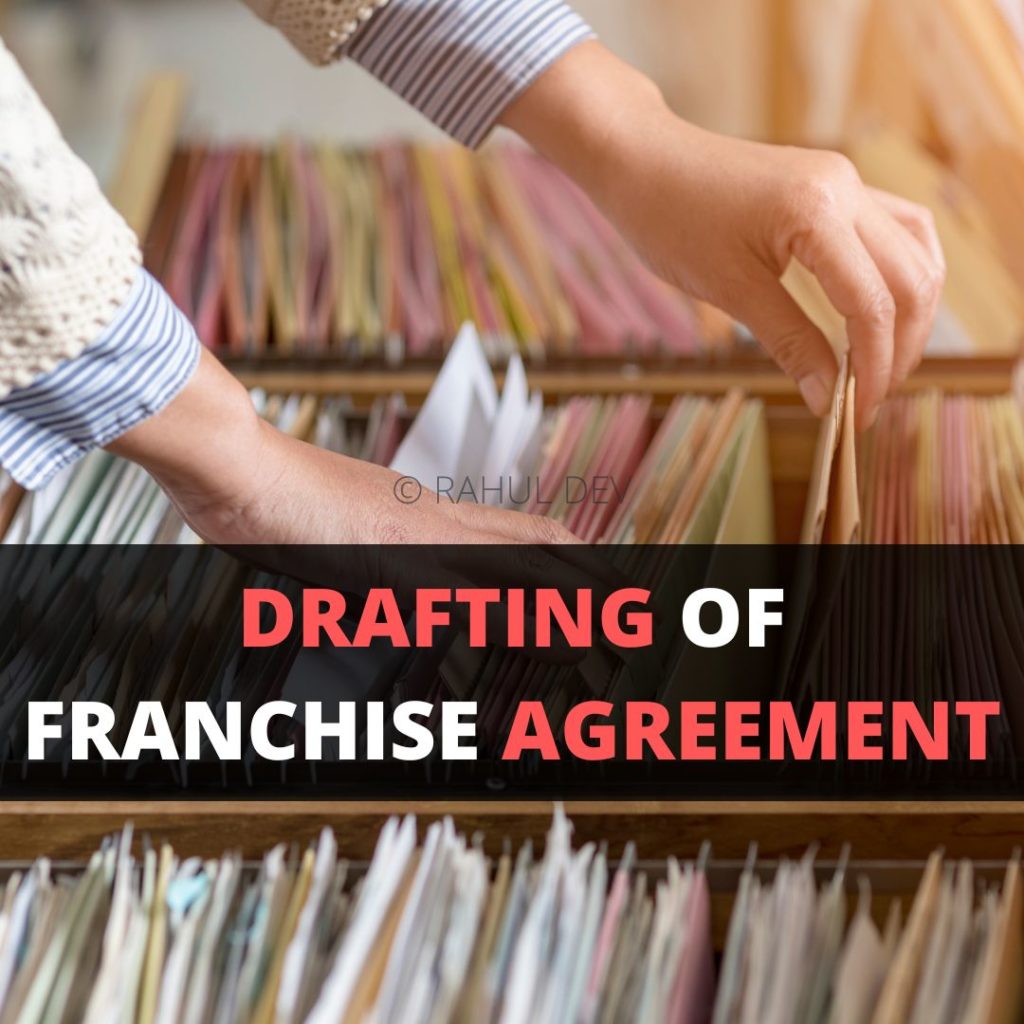

Protect Your Brand Worldwide
trademark rights
Secure your brand name and logo from being copied
International trademarks
Protect your brand in 100+ countries

Secure your brand name and logo from being copied
Protect your brand in 100+ countries
You will be your own boss in International Franchising, but with the benefits of a large, multinational organization. You will receive the assistance and guidance of a seasoned franchisor, as well as critical market research and revenue forecasting. As a franchisee, you can rely on their expertise and pick up new skills as you go. This is an excellent way to break into the franchising industry and benefit from global expansion.
The joint-venture method is one method for international franchising in which the franchisor establishes a joint-venture company with a foreign partner to develop a franchise network in the target market. This method is less expensive than the subsidiary method and is ideal if you intend to expand your business into a large, distant market. Joint ventures benefit the local partner as well, who has firsthand market knowledge. The advantages are numerous as well, including diversifying financial burdens, opening company-owned pilot sites, and dividing profits.
There are numerous challenges to establishing a successful franchise in another country. Differences in culture, laws, languages, dietary restrictions, and legalities can all present unique challenges. Despite the risks, international franchising offers franchisees significant potential. If you are considering opening a franchise in another country, don’t be afraid to seek legal counsel for structuring a strong franchise transaction.

A franchise agreement is a legal contract between two parties that describes one party’s franchised business model. It stipulates the franchisor’s and franchisee’s rights and responsibilities. Typically, a franchise agreement involves one or more franchisees, who may then transfer the franchising business to the other. There are, however, a few exceptions, and in certain jurisdictions, franchise agreements may be subject to foreign law.
Before getting into an international franchise arrangement, businesses should examine the country’s legal environment. Although there are considerable differences, the majority of jurisdictions share certain franchise regulations. According to a study conducted in Lithuania, a shorter regulation in Lithuania is more appealing to established worldwide franchise corporations than a lengthy regulation in Latvia. In addition, the legislation in Latvia strikes a balance between flexibility and completeness. This is a crucial consideration when negotiating a global franchise deal. Important is the extent of intellectual property rights.
A franchise agreement must describe the extent to which a franchisee may utilize a trademark or brand, as well as any other restrictions that may hinder the franchisee from leveraging its intellectual property to the benefit of its customers. Due diligence is a non-negotiable requirement in franchise contracts. Regardless of the extent of intellectual property protection, a contract must include provisions for franchisee pay. Compensation might be a one-time payment, a royalty, or a markup on the wholesale price of the franchisee’s product.
According to applicable regulations, trademarks and service marks are essential franchise agreement components. These are state-registered, legally-recognized techniques of distinguishing between items and services. The contract must be signed in a language understood by both parties. If franchisees are located in separate nations, these concerns become even more important. When a franchise agreement is signed with a foreign business partner, the agreement must be registered with the bank of that nation. For this reason, an international franchise agreement is required for each franchising business transaction in the country.
At the time of drafting of franchise agreement, various important points are considered by the attorney who is writing a franchise agreement, including, the extent of international trademark protection that exists to protect the brand name or the trademark involved in the franchise transaction. The franchise agreement shall specifically include provisions that state the limited use trademark license without any transfer or assignment of trademark ownership. The limited use rights generally remain valid during the life of the franchise agreement and shall expire with the termination or non-renewal of the international franchise agreement.
Franchisor and franchisee sign a franchise agreement. It defines each party’s responsibilities and rights. It should mention the franchise agreement’s length and franchisor resale rights. The contract should include renewal rights, local advertising regulations, personal assurances, and general releases. It should also cover conflicts and first refusal. In use, the Franchisees pay the franchisor an initial and recurring fee. Franchisees may have to invest in brand development and marketing. The agreement should outline the franchisee’s recordkeeping duty and method. It should also outline the franchisor’s software and auditing policies. Document should also define franchisees’ geographical rights.
A franchisee must follow the franchise agreement’s provisions or risk losing the franchise. The franchisor and franchisee sign a franchise agreement. It outlines franchisor and franchisee rights and obligations. The format of franchise agreements varies by business type. Franchise agreements must be signed by both parties. A franchise agreement protects the franchisor’s IP and trademarks and regulates franchisees’ usage of them.
Before opening a Cafe, a franchisee must thoroughly review the Cafe Franchise Agreement. It will detail the franchise agreement’s terms and conditions and compel the franchisee to adhere to them. In addition, the franchisee cannot begin recruiting unaffiliated individuals or organizations until the site has been approved and the franchised office has been launched. The Cafe Franchise Agreement is a legally binding contract that must be read carefully to avoid errors. Usually, the minimum franchise period is five years. A minimum development schedule of five years is necessary. During the initial time, the Area Developer must encourage third-party franchisees to build a minimum number of Cafe franchises in the Territory. This minimal number is mentioned in the Development Schedule, which outlines the terms and conditions of the franchise deal. Typically, the lowest Development Schedule asks for the establishment of ten Cafe franchisees over the course of five years.
Before signing a Restaurant Franchise Agreement, you should familiarize yourself with its essential provisions. Among these are trademark ownership, location and quality standards, and payment conditions. In addition to guaranteeing the secrecy of any confidential information, franchise agreements for restaurants also stipulate a standard punishment for violation of the provisions. It is essential for the successful operation of a franchised restaurant to keep these in mind. Before signing a Restaurant Franchise Agreement, there are a number of other issues that should be considered.
In addition, the Franchisee must strictly adhere to the terms and conditions of the Restaurant Franchise Agreement as outlined in the Franchise Manual. The Franchisee must adhere as rigorously as feasible to the Manual. He is required to keep the Manual in his franchised restaurant. This document is not to be copied and must be kept in strict confidence. Only personnel who require access to the Manual are permitted to review it. The Franchisee cannot amend the Manual without prior approval from the party.
Before entering into a franchise agreement for a retail store, it is essential to comprehend the contract’s key provisions. Among these factors are the intellectual property rights, which are crucial. For this reason, the franchise agreement for a retail outlet should have a confidentiality clause. This clause safeguards the franchisee’s clients, sourcing, and business processes. Also referred to as a trade secret. The key provisions of the Retail Store Franchise Agreement are outlined below.
The franchise agreement for a retail store must include the following essential details: goods and pricing information, cost and terms, advertising and obligations. If applicable, the agreement should also stipulate whether the franchisor and franchisee will agree to the addition of additional locations. In addition to these specifics, the agreement should also include the franchised unit’s terms and conditions. Before signing a contract, it is vital to read it thoroughly. A well-written contract will safeguard your interests.
Franchise business plans must include a feasibility section. This section evaluates your idea’s feasibility. You can’t make income predictions, therefore be conservative. Risk assessment, market analysis, and growth predictions should be in the feasibility section. It should explain how you’ll market and attract customers.
Here are some franchise business plan tips: Franchise business plans include financial predictions. Long- and short-term financials must be included. Franchisees should know lenders may not cover the total investment. Therefore, they must find outside funding. Financial estimates should incorporate a repayment schedule. In summary, a franchise business plan’s financials should be realistic.
A strong franchise business plan includes a business overview, product or service details, and owner roles. The plan should also detail franchisor marketing. This paragraph should be clear and succinct. Write clearly without jargon. Plan should incorporate company and management goals. Realistic, quantifiable goals are best. Competitive analysis should be included. Identify your competitors’ products and services. Thorough market research reveals your competitors’ strengths and flaws. A business strategy can be five to 10 pages lengthy, but it must be thorough. It should emphasize corporate difficulties and strengths. The franchise business strategy must have success elements. It should include strategies to get money, attract consumers, and grow the business. Follow these guidelines to succeed.
In addition to the crucial points stated here relating to franchise agreements and franchise business plans, the future business models based on innovation may regularly need assistance for Patent Searching. The results of a patent search report can assist in determining if Patent Drafting is the next step for International Patent Filing along with USPTO Patent Filing. In case of blockchain based business models, utility token Legal Opinion Letters may also be needed, along with a set of applicable contracts and agreements.
Our team of advanced patent attorneys assists clients with patent searches, drafting patent applications, and patent (intellectual property) agreements, including licensing and non-disclosure agreements.
Advocate Rahul Dev is a Patent Attorney & International Business Lawyer practicing Technology, Intellectual Property & Corporate Laws. He is reachable at rd (at) patentbusinesslawyer (dot) com & @rdpatentlawyer on Twitter.
Quoted in and contributed to 50+ national & international publications (Bloomberg, FirstPost, SwissInfo, Outlook Money, Yahoo News, Times of India, Economic Times, Business Standard, Quartz, Global Legal Post, International Bar Association, LawAsia, BioSpectrum Asia, Digital News Asia, e27, Leaders Speak, Entrepreneur India, VCCircle, AutoTech).
Regularly invited to speak at international & national platforms (conferences, TV channels, seminars, corporate trainings, government workshops) on technology, patents, business strategy, legal developments, leadership & management.
Working closely with patent attorneys along with international law firms with significant experience with lawyers in Asia Pacific providing services to clients in US and Europe. Flagship services include international patent and trademark filings, patent services in India and global patent consulting services.
Global Blockchain Lawyers (www.GlobalBlockchainLawyers.com) is a digital platform to discuss legal issues, latest technology and legal developments, and applicable laws in the dynamic field of Digital Currency, Blockchain, Bitcoin, Cryptocurrency and raising capital through the sale of tokens or coins (ICO or Initial Coin Offerings).
Blockchain ecosystem in India is evolving at a rapid pace and a proactive legal approach is required by blockchain lawyers in India to understand the complex nature of applicable laws and regulations.
Read About Patent FIling Guide



